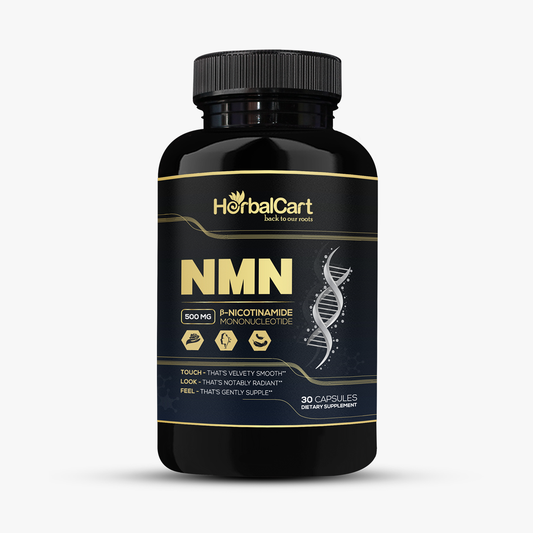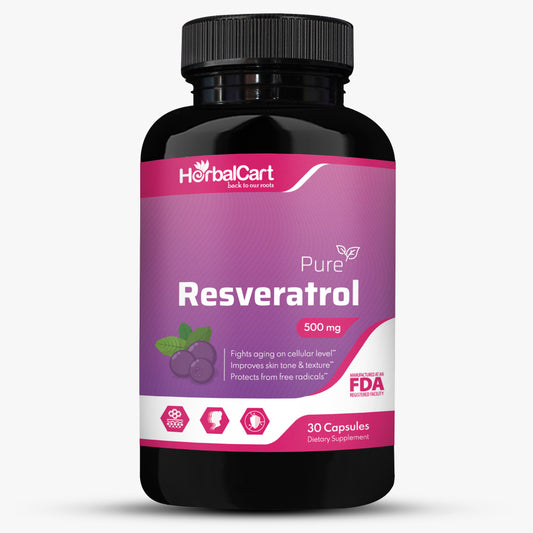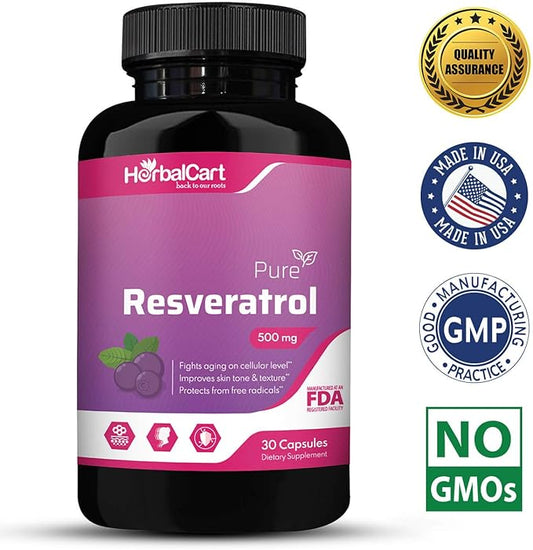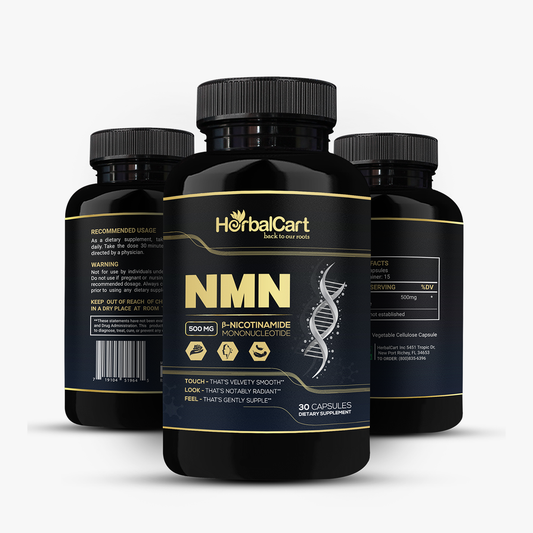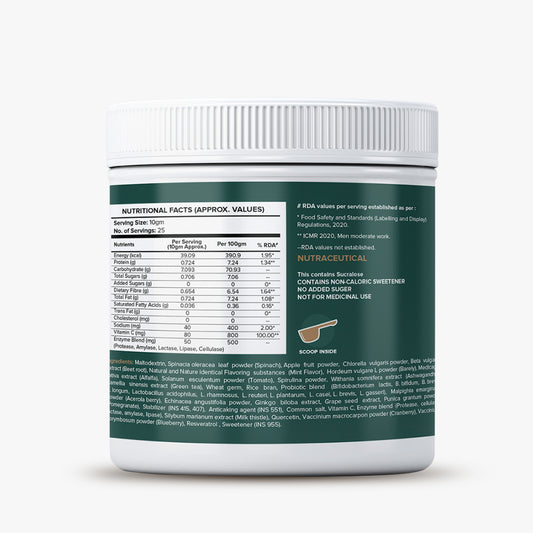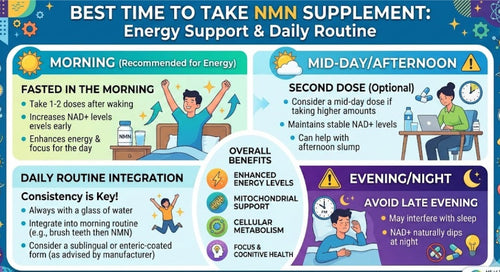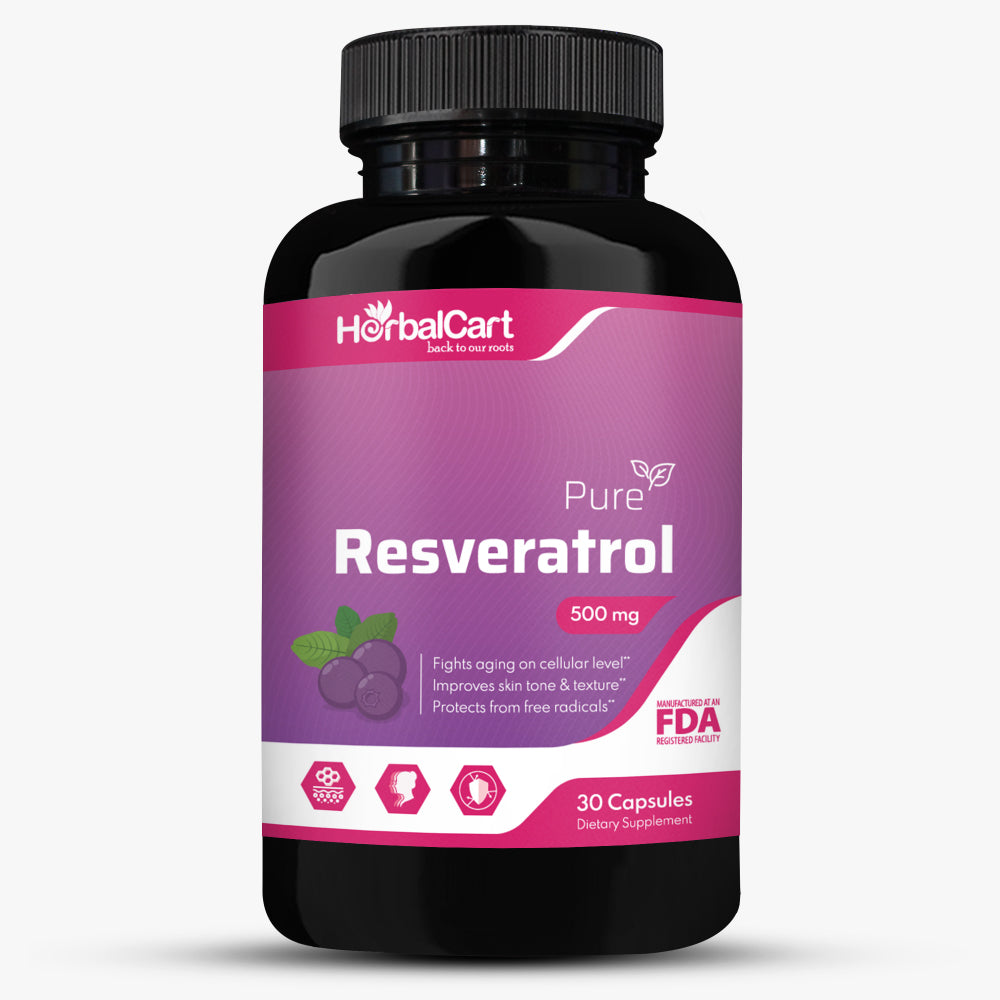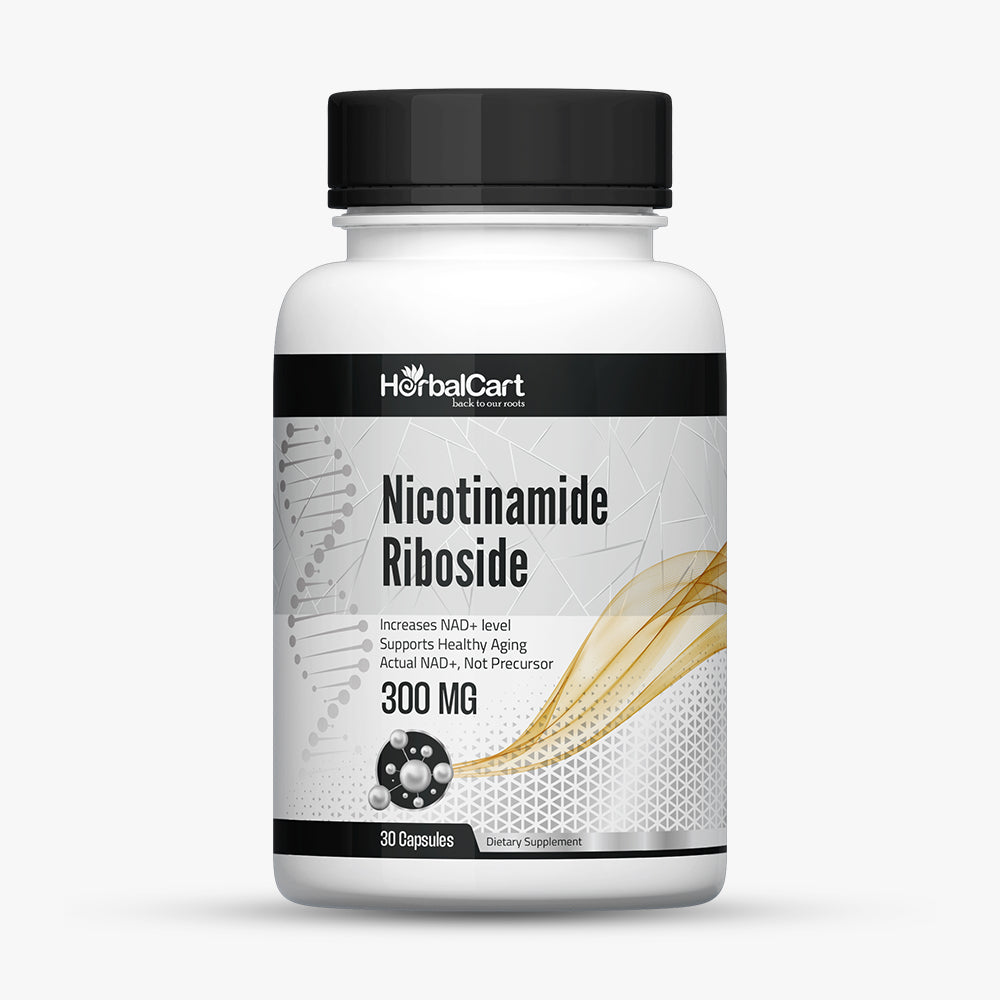Magnesium is necessary to maintain muscle function, support the nervous system, and promote overall health. However, most people do not get enough magnesium from their diet alone. Magnesium citrate is the right choice for daily support due to its high absorption rate and many uses, making it a better option.
Magnesium citrate is an example of a magnesium supplement. Combining magnesium with citric acid creates a compound with high bioavailability that can effectively resolve magnesium deficiency and health issues. Whether digestive health is your priority, you want good muscle function, or health is of primary concern to you, knowing how magnesium citrate operates can be valuable in deciding if it suits your needs.
This all-encompassing guide will cover all aspects of magnesium citrate's function, from its scientifically backed benefits and proper usage to potential side effects and how it compares to other magnesium forms.
What Is Magnesium Citrate?
Aided by the citrate element, magnesium is better absorbed in the small intestine, making it available for the body's use. This increased bioavailability implies a lower dose would usually achieve the intended therapeutic effect compared with less absorbable forms (e.g., magnesium oxide).
Magnesium citrate has mild osmotic laxative effects, which attract water into the intestines. The extra water softens stool and hence stimulates bowel movements. Thus, it is predominantly employed to treat constipation and prepare the intestine for specific tests and operations.
Magnesium citrate's likeable taste and high solubility enable it to be produced in various forms, including powders for water dissolution, jazzed-up liquid solutions, and capsules or tablets. This diversity thus makes it quicker and easier to find a form that best suits the consumer's taste and preference.
If somebody were looking to purchase magnesium citrate supplements, they might see them either labeled as "magnesium citrate" or "citrate of magnesia," particularly in the case of liquid formulations. The content of pure magnesium available (i.e., the actual magnesium) is usually within 10-16% of the total compound weight. Thus, this factor should be considered when one calculates the dose.
Benefits of Magnesium Citrate
Magnesium citrate is best known for supporting digestive health, particularly as a natural and effective remedy for constipation. Because the body absorbs more easily than other forms, it's often recommended when fast, gentle relief is needed. Whether used occasionally for bowel relief or in smaller doses to promote regularity, magnesium citrate offers targeted digestive support without the harsh effects of stimulant laxatives.
Relieves Constipation and Supports Digestive Health
One of the most common uses for magnesium citrate is as a gentle osmotic laxative. Unlike stimulant laxatives that can cause cramping or dependency, magnesium citrate works by drawing water into the intestines, which helps:
- Soften stool for easier passage.
-Gently stimulate intestinal contraction.
-Provide relief typically within 30 minutes to 6 hours after taking it.
This laxative effect makes magnesium citrate particularly valuable for occasional constipation relief and bowel preparation before colonoscopies or specific surgical procedures. Many gastroenterologists recommend it because it's generally effective and gentler than other bowel preparation options.
Beyond acute constipation relief, small doses of magnesium citrate may help maintain digestive regularity for those prone to constipation. Some research suggests that chronic magnesium deficiency can contribute to constipation in specific individuals, making supplementation a potential part of a long-term digestive health strategy.
Supports Cardiovascular Health
Magnesium plays a crucial role in maintaining heart health and normal cardiovascular function. It helps regulate heart rhythm, supports healthy blood pressure, and contributes to cardiovascular well-being in several ways.
Research has shown that magnesium supplementation may help reduce blood pressure in individuals with hypertension. A meta-analysis published in Hypertension found that magnesium supplementation produced modest but significant reductions in both systolic and diastolic blood pressure.
Magnesium also helps regulate heart rhythm by balancing electrolytes like calcium and potassium. This balance is essential for the proper electrical signaling that keeps your heartbeat steady and regular. Some studies suggest that maintaining adequate magnesium levels may help reduce the risk of arrhythmias and irregular heartbeats.
The relationship between magnesium and heart health extends to blood vessels as well. Magnesium helps support endothelial function (the health of blood vessel linings) and may help prevent arterial calcification, potentially reducing the risk of atherosclerosis.
Eases Muscle Tension and Cramps
Magnesium is essential for proper muscle function, as it helps muscles contract and relax normally. When magnesium levels are insufficient, muscles may remain partially contracted, leading to cramping, tension, and discomfort.
Magnesium citrate supplementation may help:
-
Reduce the frequency and intensity of muscle cramps, including nighttime leg cramps.
-
Alleviate muscle tension that contributes to tension headaches.
-
Support recovery after intense exercise.
-
Help manage symptoms of fibromyalgia and chronic fatigue syndrome.
Magnesium citrate's reasonable absorption rate effectively addresses muscle-related issues, particularly when taken regularly to maintain optimal magnesium levels in muscle tissue.
Supports Bone Health
While calcium often gets the spotlight for bone health, magnesium is equally important. Approximately 60% of the body's magnesium is stored in bones, strengthening bone structure.
Magnesium supports bone health through several mechanisms:
-
Activates vitamin D, which enhances calcium absorption
-
Regulates calcium transport between bones and soft tissues
-
Influences the activity of bone-forming cells (osteoblasts) and bone-resorbing cells (osteoclasts)
Research suggests that higher magnesium intake is associated with greater bone mineral density, which is especially important for preventing osteoporosis as we age. Magnesium citrate's good bioavailability makes it a practical choice for supporting long-term bone health as part of a comprehensive bone support regimen.
May Help Manage Stress and Anxiety
Magnesium is key in regulating the body's stress response and neurotransmitter function. It modulates the hypothalamic-pituitary-adrenal (HPA) axis, which controls the release of stress hormones like cortisol.
Some research suggests that magnesium supplementation may help:
-
Reduce subjective feelings of anxiety.
-
Support a healthy stress response.
-
Promote relaxation without sedation.
-
Improve mood in some individuals with mild to moderate depression.
A systematic review published in the journal Nutrients found that magnesium supplementation improved subjective anxiety measures. While magnesium citrate may not be as calming as forms bonded to amino acids like glycine or taurine, its good absorption makes it effective for maintaining the magnesium levels needed for proper neurological function.
Supports Migraine Prevention
Several clinical trials have investigated the use of magnesium supplements for migraine prevention, with promising results. Magnesium affects several factors related to migraine development, including:
-
Neurotransmitter release and receptor activity.
-
Inflammation and pain pathways.
-
Blood vessel constriction and dilation.
-
Cortical spreading depression (a key phenomenon in migraine).
The American Academy of Neurology and the American Headache Society have included magnesium in their guidelines for migraine prevention, noting that it's generally well-tolerated and may be effective for certain patients. Magnesium citrate's good absorption makes it one of the more practical forms for this purpose.
May Help with Blood Sugar Regulation
Magnesium plays a crucial role in glucose metabolism and insulin function. It influences:
-
Insulin receptor sensitivity
-
Glucose transport into cells
-
Enzymes involved in glucose processing
Some research suggests that maintaining adequate magnesium levels may help improve insulin sensitivity and glucose metabolism. A meta-analysis published in the Journal of Internal Medicine found that magnesium supplementation improved insulin sensitivity and fasting glucose levels in individuals with or at risk for diabetes.
While magnesium supplementation isn't a replacement for conventional diabetes management, maintaining optimal magnesium levels may be a helpful complementary approach, especially for those with documented low magnesium status.
Who Might Benefit from Magnesium Citrate?
Magnesium citrate may be particularly beneficial for:
-
People with occasional constipation: Its gentle laxative effect makes it useful for short-term relief.
-
Those preparing for colonoscopies or certain surgeries: Many medical procedures require bowel clearing, for which magnesium citrate is commonly prescribed.
-
Individuals with low dietary magnesium intake: Those who consume few magnesium-rich foods like leafy greens, nuts, seeds, and whole grains.
-
People with conditions that deplete magnesium, such as:
-
Gastrointestinal disorders that affect absorption (Crohn's disease, celiac disease)
-
Type 2 diabetes (which can increase magnesium excretion)
-
Alcohol dependency (which reduces absorption and increases excretion)
-
Those taking medications that deplete magnesium, including:
-
Proton pump inhibitors
-
Certain diuretics
-
Some antibiotics
-
Certain chemotherapy drugs
-
Athletes and active individuals: Intensive exercise increases magnesium needs and losses through sweat.
-
Individuals with migraines: Based on clinical evidence supporting magnesium for migraine prevention.
How to Use Magnesium Citrate Effectively
Magnesium citrate can be helpful for a variety of needs, from easing constipation to maintaining healthy magnesium levels. However, the benefits depend on how and why you’re using it. The correct dosage can vary based on your goals, so it’s essential to read labels carefully and understand the difference between total compound weight and magnesium content.
The appropriate dosage of magnesium citrate depends on your purpose for taking it:
For general magnesium supplementation:
-
Adults: 200-400 mg of elemental magnesium daily, divided into 2-3 doses.
-
Children (under medical supervision): Dosage based on age and weight.
For constipation relief:
-
Adults: 195-300 mg in liquid form, typically taken as a single dose
-
Children (under medical supervision): Reduced dosage based on age and weight
For bowel preparation before procedures:
-
Follow your healthcare provider's specific instructions, as protocols vary
When reading supplement labels, pay close attention to the amount of elemental magnesium per serving, not just the total weight of the magnesium citrate compound. For reference, the Recommended Dietary Allowance (RDA) for magnesium is:
-
Adult men: 400-420 mg daily
-
Adult women: 310-320 mg daily (350-360 mg during pregnancy)
Timing and Administration
For general supplementation:
-
Take with food to minimize potential digestive discomfort.
-
Divide larger doses throughout the day.
-
Consider taking vitamin D and K2, which work synergistically with magnesium.
For constipation relief:
-
Take on an empty stomach for a faster effect.
-
Drink plenty of water (typically 8 oz or more).
-
Take it in the evening if preparing for a morning bowel movement.
-
Allow 30 minutes to 6 hours for effects.
For digestive comfort:
-
Start with a lower dose and gradually increase as tolerated.
-
Take with meals to reduce potential GI upset.
Magnesium citrate is available in several forms:
-
Liquid solution (fastest acting, commonly used for constipation).
-
Powder (can be mixed with water, juice, or smoothies).
-
Capsules or tablets (most convenient but may take longer to dissolve).
Potential Drug Interactions
Magnesium citrate may interact with certain medications:
Antibiotics: Magnesium can bind to some antibiotics (particularly tetracyclines and fluoroquinolones), reducing their absorption. Take magnesium citrate at least 2 hours before or 4-6 hours after these antibiotics.
Bisphosphonates: Medications for osteoporosis may bind with magnesium, reducing absorption of both separate dosing by at least 2 hours.
Diuretics: Some diuretics cause magnesium loss (thiazides, loop diuretics) while others spare magnesium (potassium-sparing diuretics). Dosage adjustments may be necessary.
Heart medications: Magnesium may enhance the effects of certain heart medications. Monitor blood pressure and heart rate if taking digoxin, calcium channel blockers, or antiarrhythmic drugs.
Acid reflux medications: When used long-term, Proton pump inhibitors and H2 blockers may reduce magnesium absorption.
Always inform your healthcare provider about all supplements you take to avoid potential interactions.
Potential Side Effects and Considerations
While magnesium citrate is generally considered safe for most people when used as directed, some side effects may occur:
Common Side Effects
Digestive effects: The most common side effects involve the digestive system, including:
-
Loose stools or diarrhea (especially at higher doses)
-
Abdominal cramping or discomfort
-
Gas or bloating
-
Nausea
These effects are often dose-dependent and subside by reducing or dividing the daily dosage.
Electrolyte imbalances: Excessive use of magnesium citrate, especially as a laxative, may lead to electrolyte imbalances, particularly potassium, sodium, and calcium. Symptoms may include:
-
Weakness or fatigue
-
Irregular heartbeat
-
Muscle cramps or weakness
-
Confusion
Less Common but More Serious Side Effects
In rare cases, particularly with excessive doses or in people with certain medical conditions, more serious side effects may occur:
Magnesium toxicity: Primarily a concern for people with impaired kidney function who cannot effectively eliminate excess magnesium. Symptoms include:
-
Severe hypotension (low blood pressure)
-
Respiratory depression
-
Cardiac arrhythmias
-
Confusion or coma
Severe dehydration: Excessive fluid loss through the bowels can lead to dehydration, particularly in elderly individuals or those taking multiple doses for constipation.
Who Should Avoid Magnesium Citrate?
Magnesium citrate is not appropriate for everyone. It should be avoided or used only under close medical supervision in people with:
Kidney disease: Impaired kidney function reduces the ability to excrete excess magnesium, increasing the risk of magnesium toxicity.
Bowel obstruction or perforation: Magnesium citrate should not be used if these conditions are suspected.
Severe abdominal pain of unknown cause: Laxatives can worsen certain severe conditions like appendicitis.
Recent bowel surgery: Check with your surgeon about when it's safe to resume using laxatives.
Rectal bleeding: A healthcare provider should evaluate this symptom before using laxatives.
Severe dehydration or electrolyte imbalances: These should be corrected before using magnesium citrate.
Comparing Magnesium Citrate to Other Forms
There are numerous magnesium supplements available, each with unique properties:
Magnesium citrate: Good bioavailability (approximately 25-30%), has mild laxative effects, is generally well-tolerated, and affordable.
Magnesium glycinate: It has high bioavailability and minimal laxative effect. It is suitable for sleep and anxiety, but may be more expensive.
Magnesium oxide: Poor bioavailability (about 4-5%), more substantial laxative effect, commonly used for constipation and acid indigestion.
Magnesium chloride: Good absorption, often used in topical applications and for raising magnesium levels quickly.
Magnesium L-threonate: Can cross the blood-brain barrier more effectively, offering enhanced cognitive benefits.
Magnesium malate: Well-absorbed and may help with fatigue and muscle pain.
Magnesium sulfate (Epsom salt): Typically used in bath soaks for muscle soreness or occasionally as an oral laxative.
Best Magnesium Forms for Specific Health Goals
Not all magnesium supplements work the same way. Different forms are absorbed and used by the body in various ways, and choosing the right type can make a noticeable difference. Whether you're dealing with constipation, muscle cramps, low energy, or brain fog, there's a form of magnesium that matches your needs.
For Constipation
Best forms: Magnesium citrate or magnesium oxide
These forms work as gentle osmotic laxatives by drawing water into the intestines, which helps soften stool and ease bowel movements. They’re often used for short-term relief from occasional constipation.
For Daily Supplementation
Best forms: Magnesium citrate, glycinate, or malate
These are commonly used for maintaining overall magnesium levels. They offer sound absorption and are generally well-tolerated, making them suitable for everyday use to support energy, mood, and muscle function.
For Muscle Relaxation Without Digestive Side Effects
Best form: Magnesium glycinate
Magnesium glycinate is gentle on the stomach and well absorbed. It's often recommended for people with muscle tension, cramps, or spasms who want relief without the laxative effect that other forms may cause.
For Brain and Cognitive Support
Best form: Magnesium L-threonate
This form is known for its ability to cross the blood-brain barrier, which may help improve memory, focus, and overall cognitive function. It’s often chosen for mental clarity and neurological support.
For Topical Use
Best forms: Magnesium chloride oil or Epsom salt (magnesium sulfate) baths
Topical magnesium can be applied directly to the skin to relieve muscle soreness or tension. Epsom salt baths are another popular option for full-body relaxation and soothing minor aches.
Food Sources of Magnesium
While supplements can address deficiencies, obtaining magnesium from food sources provides additional nutrients and cofactors that enhance absorption and utilization. Foods rich in magnesium include:
Green leafy vegetables: Spinach, kale, collard greens
Nuts and seeds: Pumpkin seeds, almonds, cashews, chia seeds
Legumes: Black beans, edamame, chickpeas
Whole grains: Brown rice, quinoa, whole wheat
Fruits: Avocados, bananas
Other sources: Dark chocolate (70% cocoa or higher)
(Note: Fatty fish like salmon and mackerel are nutritious but not significant sources of magnesium)
A diet rich in these whole foods can significantly contribute to your daily magnesium needs and may reduce or eliminate the need for supplementation in many cases.
When to Consult a Healthcare Provider
It's advisable to consult with a healthcare provider before using magnesium citrate if you:
-
Have kidney disease or impaired kidney function.
-
Are taking prescription medications.
-
Have a history of heart rhythm abnormalities.
-
Experience chronic or severe constipation.
-
Are pregnant or breastfeeding.
-
Have inflammatory bowel disease.
-
Experience unusual symptoms after taking magnesium.
Seek immediate medical attention if you experience:
-
Severe abdominal pain
-
Rectal bleeding
-
Symptoms of magnesium overdose include extreme drowsiness, confusion, muscle weakness, and irregular heartbeat.
-
No bowel movement after using magnesium citrate for constipation.
-
Signs of severe dehydration (extreme thirst, dry mouth, little or no urination, severe weakness).
Conclusion: Is Magnesium Citrate Right for You?
Magnesium citrate offers a well-absorbed form of this essential mineral with specific benefits for digestive health and overall wellness. Its good bioavailability, gentle laxative action, and affordability make it a popular choice for addressing magnesium deficiency and occasional constipation.
Whether you're looking to support regular bowel function, prepare for a medical procedure, or ensure you're getting enough of this vital nutrient, magnesium citrate can be a practical option. However, like any supplement, it's inappropriate for everyone and should be used mindfully.
By understanding the proper dosage, timing, potential side effects, and contraindications, you can decide whether magnesium citrate might benefit your specific health needs. As always, partnering with a healthcare provider to address your unique circumstances is the best approach to integrating any supplement into your wellness routine.
Remember that supplements should complement, not replace, a nutrient-rich diet and healthy lifestyle. Combining appropriate supplementation with magnesium-rich foods, adequate hydration, and regular physical activity creates the foundation for optimizing your magnesium status and supporting your overall health.
This article is for informational purposes only and does not constitute medical advice. Always consult with a qualified healthcare provider before starting any new supplement regimen.





